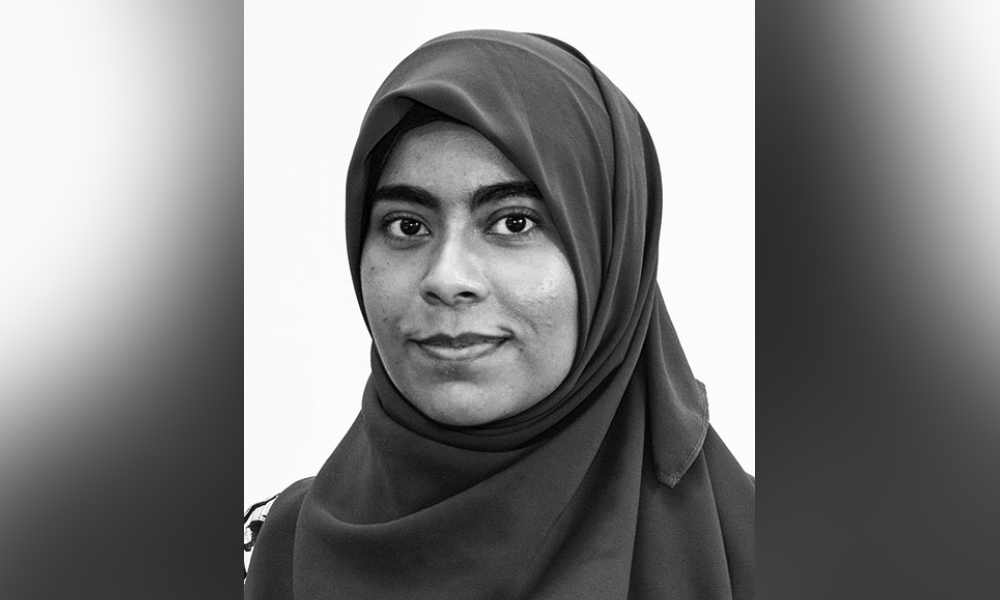
Ferdous Bahar is helping to drive culturally aware initiatives and championing racial sensitivity

Ferdous Bahar always grew up seeking a career in the law, a career that she says is “the perfect intersection” of her passion advocacy, problem-solving and access to justice. And as she hones her expertise in IP and employment law, this recent graduate from Ashurst’s program is already making a mark on the profession as an active champion of cultural and racial awareness at the leading firm.
In her role as one of the Sydney-based heads of Ashurst’s multiculturalism committee All at Ashurst, Bahar is helping to bring through fruition initiatives such as an online anti-racism hub and cultural leaves, bringing her own experiences with racial discrimination to the table. Authentic and uncomfortable conversations are necessary, she says, pointing out that “I don't think the average lawyer – let alone law firm – realises how whitewashed the legal profession is.”
In this interview, Bahar talks about using her commercial law skills to help organisations provide access to justice, confronting different kinds of risk and being excited for MCU Phase 4.
I have wanted to be a lawyer ‘when I grow up' for as long as I can remember. A career in the law sits at the perfect intersection of my interests in advocacy, problem-solving and access to justice. I love that no two days are the same and that one moment could be spent finalising the court book for a defamation hearing in the Federal Court and another spent poring over cases and guidance materials to assist on a very specific question of trademark law for a completely different matter.
As a junior lawyer, every case is memorable. However, our team recently assisted a pro bono client, a not-for-profit organisation, with the takedown of a company name and website registered by a company that was potentially passing off as our client and causing our client some stress. Other than the fact that we successfully got the registrant to take down the fake company name and website, it was wonderful to see the care, attention to detail and level of excellence still expected by my supervising partner when instructing on the matter.
Before working at Ashurst I had casually volunteered and worked at Redfern Legal Centre for about four years and it makes me particularly proud to apply the skills I am developing as a commercial lawyer, particularly in the intellectual property and employment teams, to assist organisations that are committed to providing access to justice.
There is always so much going on at Ashurst and I've been particularly interested in the firm's commitment to diversity and inclusion, as I am one of the Sydney committee leads for All at Ashurst, which is Ashurst's multiculturalism committee. I have been part of the committee since its inception, and it has allowed me to bring my knowledge and lived experience of racial discrimination to conversations about policy change and accountability in the firm. It has also introduced me to some remarkable people from our offices around the globe.
I'm really proud of the work I've done through All at Ashurst thus far. I think a lot of people are, rightfully, sceptical about joining diversity committees because of the disconnect between grassroots conversations and leadership being receptive to these conversations but I have been surprised by how quickly the firm's leadership has acted on suggestions by our committee. Since the committee's inception, Ashurst has introduced a cultural leave policy, launched a series of informal, internal conversations on racial justice, developed an online anti-racism hub to encourage firm-wide self-learning and also increased its focus on unconscious bias and allyship training.
Change doesn't happen overnight, and we'll probably see the long-term outcome of these initiatives in years to come. But I'm excited to have played a part in shaping the conversation.
We have a long way to go to adequately represent First Nations and racially diverse communities both in the legal profession and in the way the law itself operates. As a graduate of both law and media, I find it fascinating how quickly people blame the media for its failure to represent people of colour or, in some cases, actively dehumanise people of colour when the law has already been doing that work insidiously and with broader implications for much longer. I don't think the average lawyer – let alone law firm – realises how whitewashed the legal profession is but we are finally seeing some authentic, uncomfortable and much needed conversations about it.
I am grateful to my own mentors and allies in the profession who have not just made space for me but taken active steps in their own teams and networks to create space for others.
If the past year has taught us anything, it is that one that of the biggest challenges confronting the industry is responding to unprecedented risks – be it climate-related risks, the risk of information leaks and data breaches or of course the ongoing risks associated with COVID-19. I am also convinced that as people's understanding of racial justice is enhanced, this will increase the expectations of companies and in turn impact the legal risk and compliance advice sought from law firms.
The common thread in all of these risk categories is the obvious human impact that a failure to prepare these risks will have on the wider community. The other commonality is the significant long-term reputational damage and loss of trust that companies and institutions will experience if underequipped when confronting these risks. It's an exciting time for lawyers who care about people, privacy and the planet.
All of the Marvel content coming out – bring on phase 4 of the MCU! On a professional note, I am excited to settle in a team after completing the graduate program at Ashurst this September and continue building on my knowledge and skills as a lawyer.